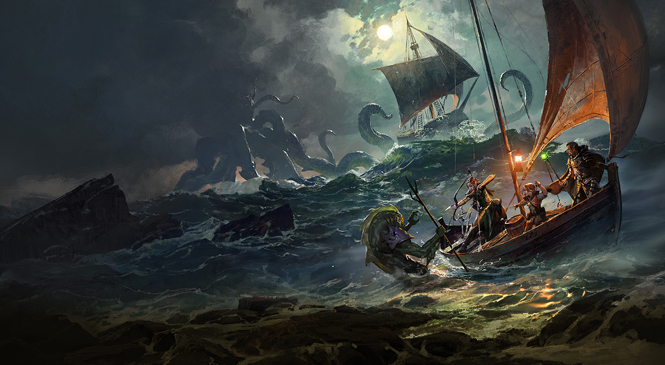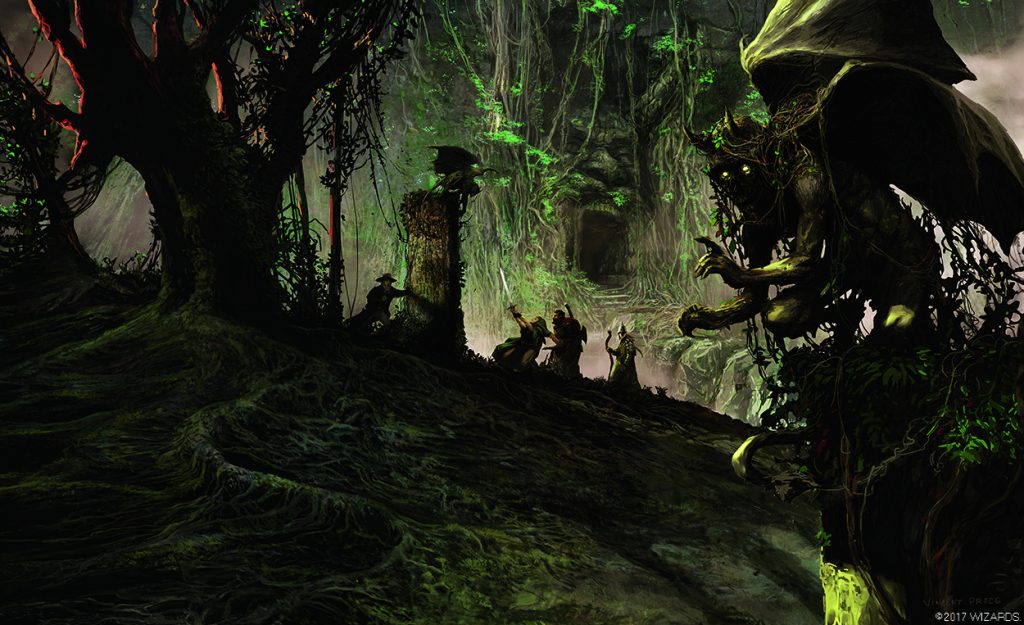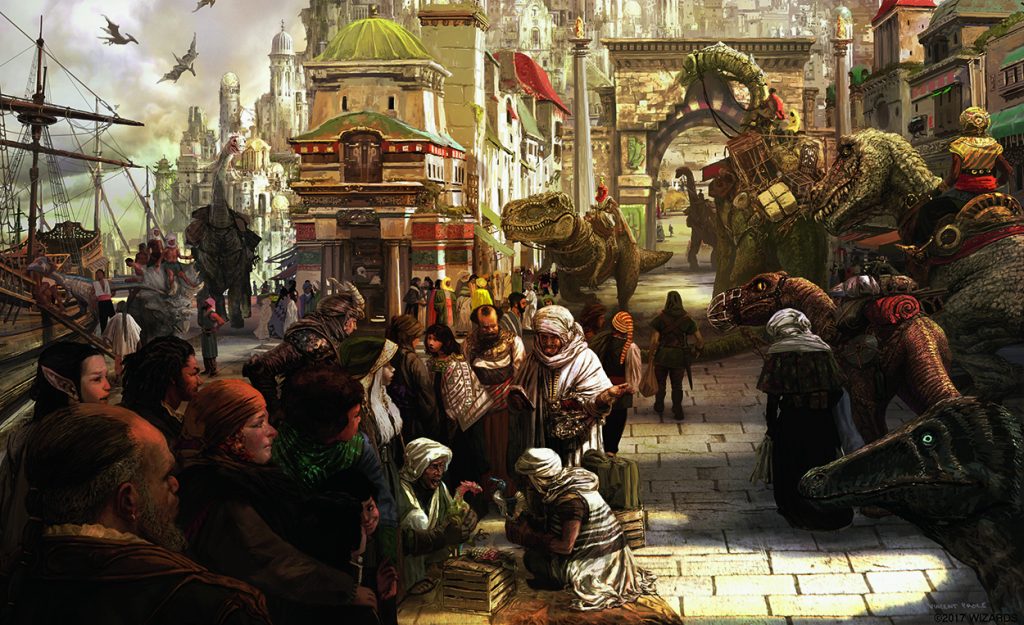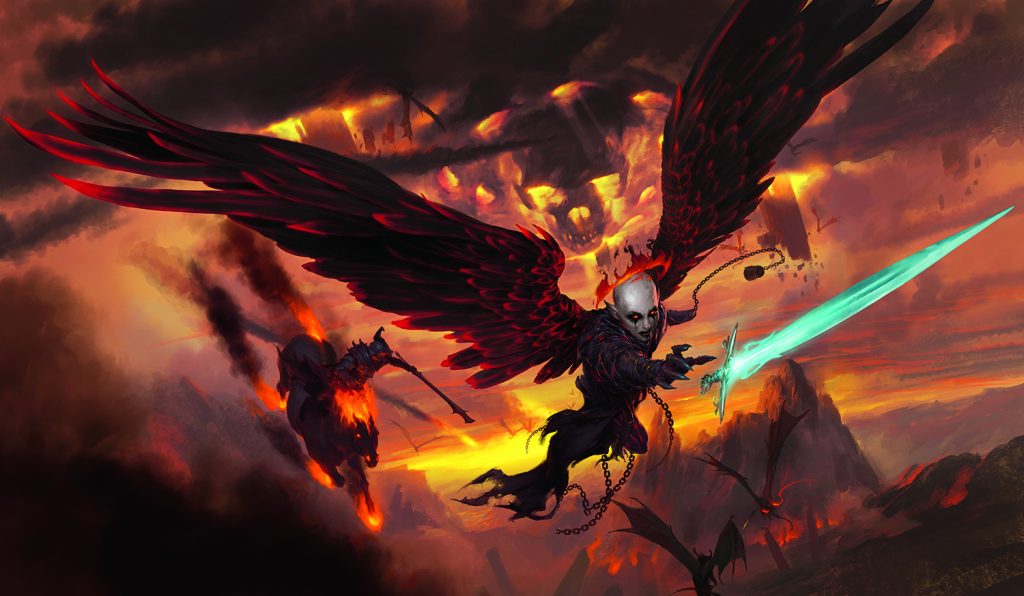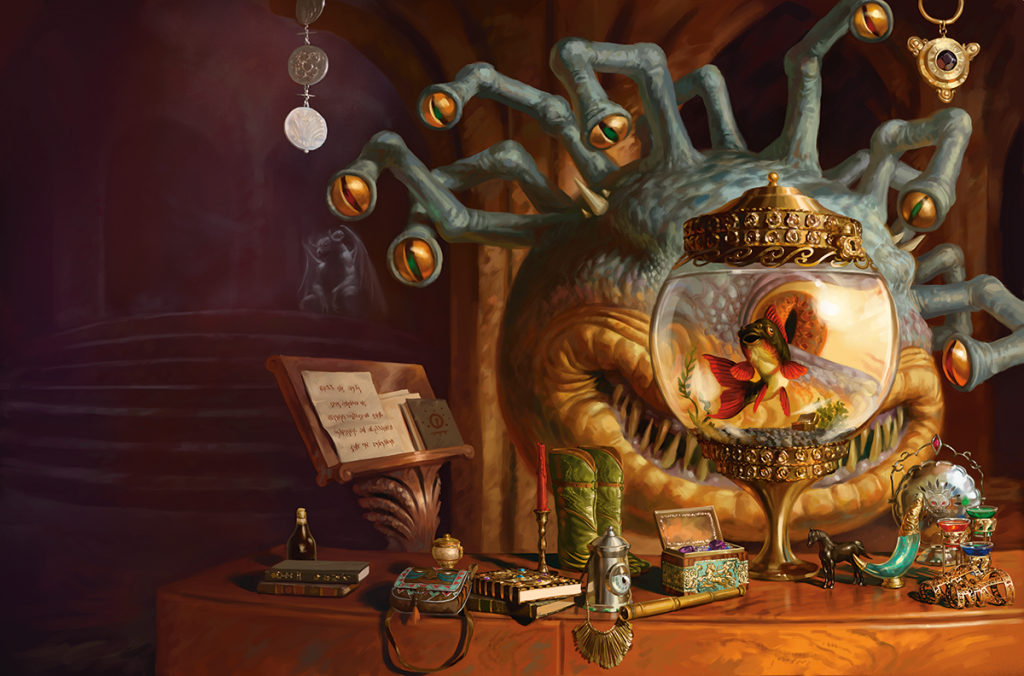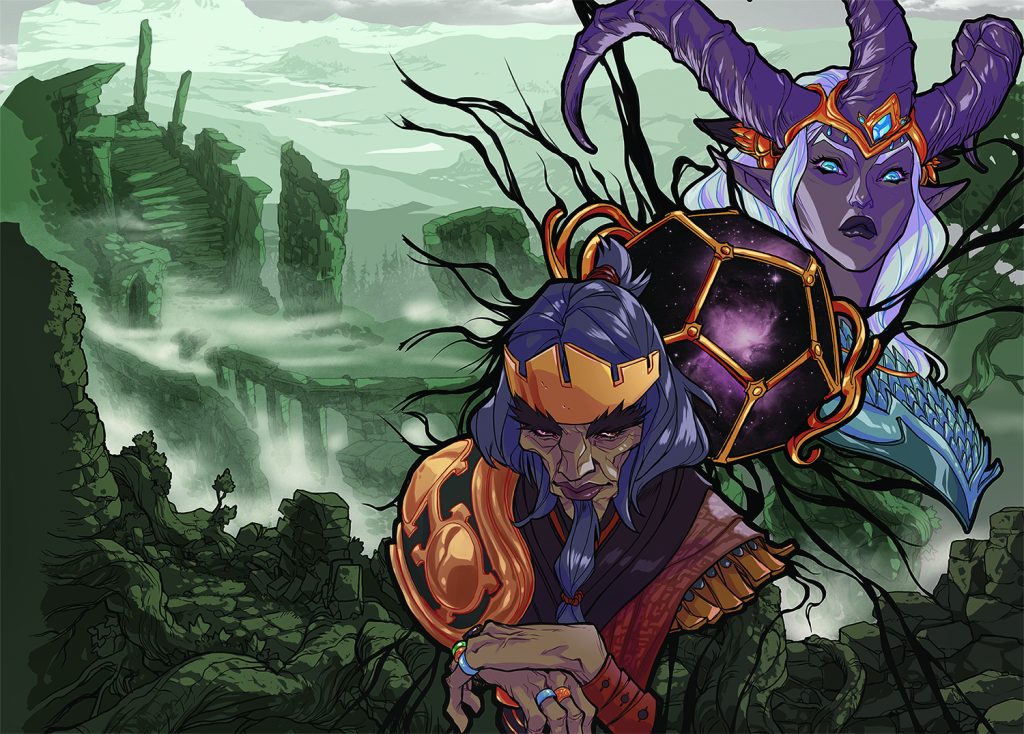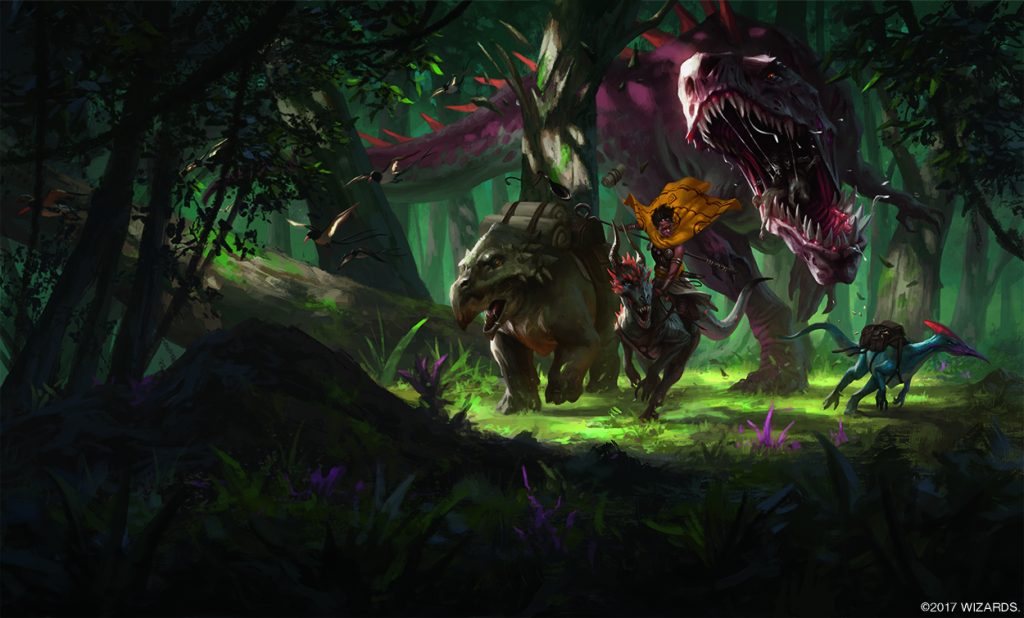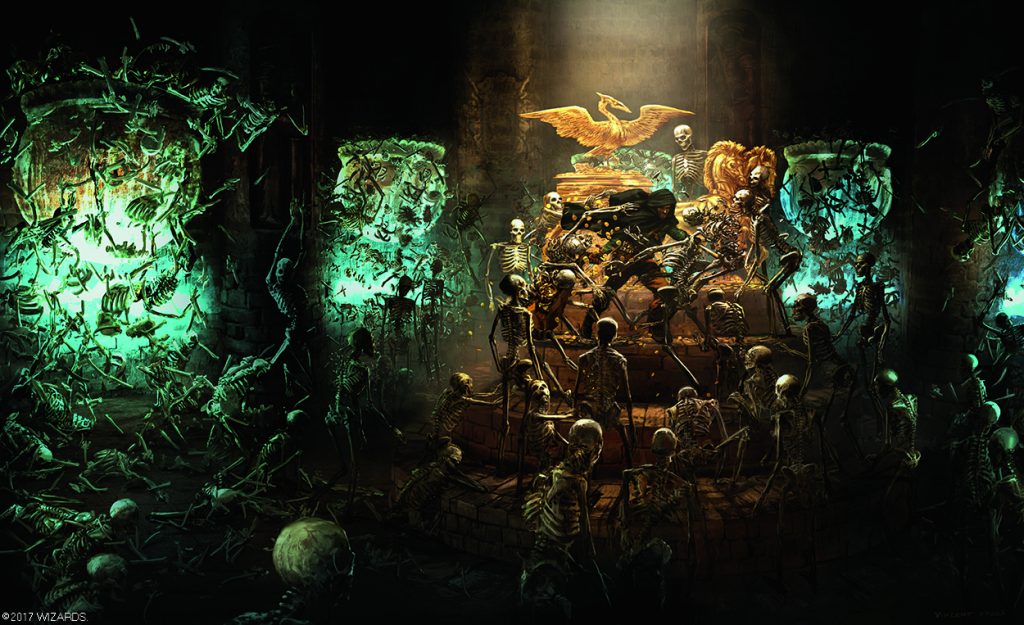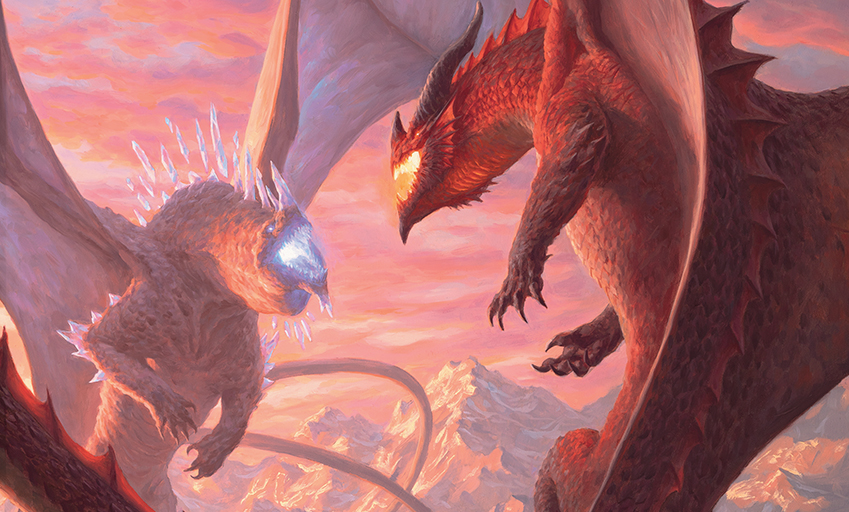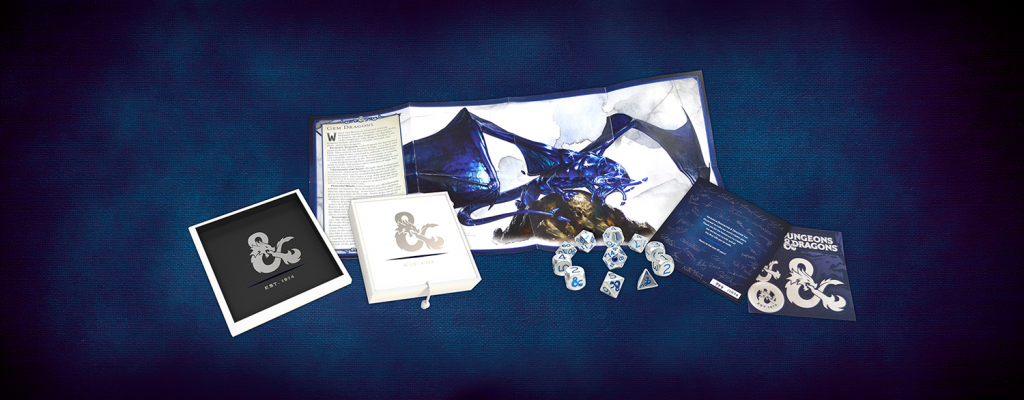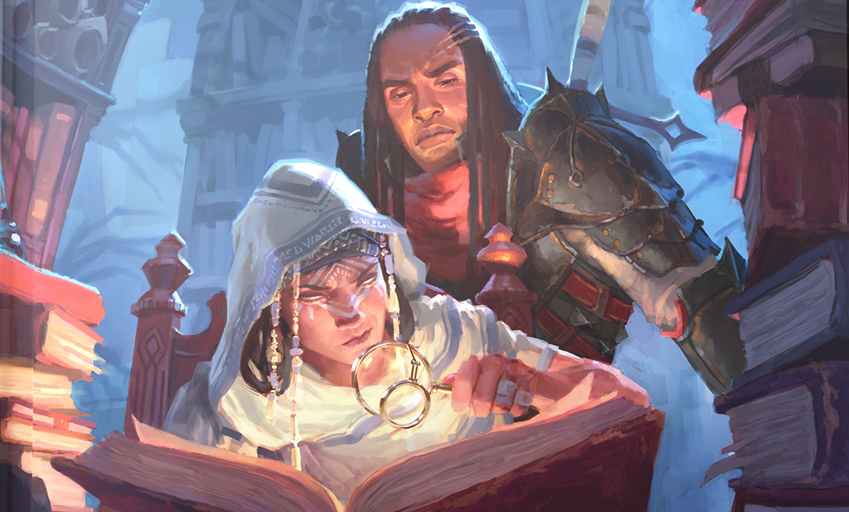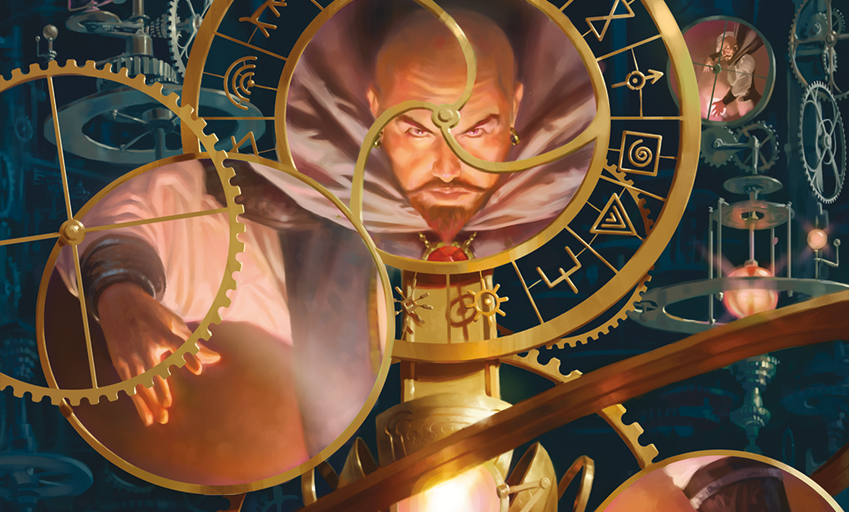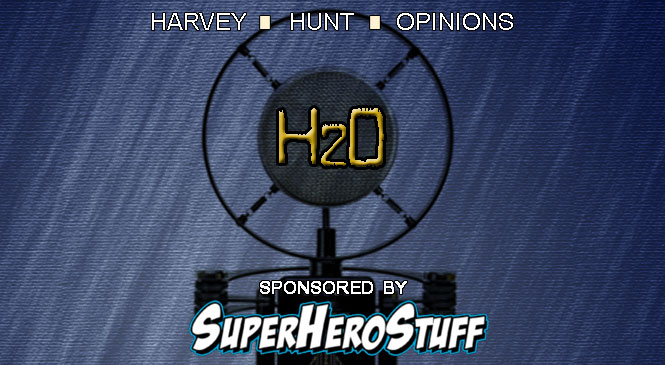Is Dungeons and Dragons Headed into a Perfect Storm?

Dungeons and Dragons (D&D) has a long history, approaching the 50th Anniversary of its initial publication in 1974 by TSR. The creators, Gary Gygax and Dave Arneson, have both passed away, and the game is now owned by Wizards of the Coast, LLC, a subsidiary of Hasbro, Inc. D&D is what most people think of when someone mentions role playing games. The story of D&D and its development is an interesting one for Role Playing Game (RPG) players or gaming historians.
It is generally accepted that D&D’s popularity is at an all-time high. It has enjoyed significant growth in recent years boosted by being highlighted on the show Stranger Things, set in the 1980s heyday of TSR, and successful Web-series Critical Role which features actors playing 5th Edition (5e) D&D.
During the 1980s, D&D or Advanced Dungeons and Dragons (AD&D) was very successful before a significant decline, leading to the eventual sale to Wizards of the Coast (Wizards) in 1997. The Dungeon Craft YouTube channel recently published Episode 295 titled “Special Report, Who Killed TSR? Can it Happen Again to WotC?” Professor Dungeon Master, the host of Dungeon Craft, discusses those questions and correctly concludes that the financial situations of TSR and Wizards aren’t similar, and that it is highly unlikely that Hasbro is going to go out of business.
I agree that Hasbro isn’t going under, but I think the future of D&D the game itself is far less certain. This article will be an exploration of the many issues that affect the future of D&D. In the end, I’d like you to ask and decide for yourself: Are Wizards’ actions best for the game?
This is a long article, seeking to provide you a lot of documentation and opinions from a variety of sources, so if you prefer a TLDR version, you can scroll to the ‘Key Points’ to get the distilled summaries and dig into any details that interest you.
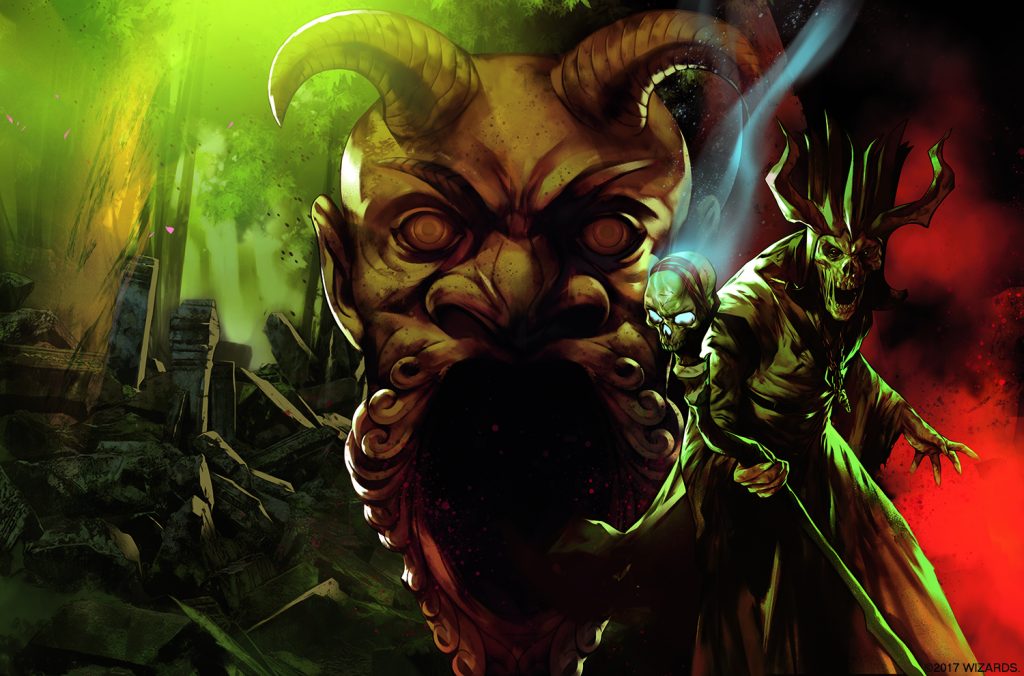
D&D is more than a game…or is it less?
The first thing to understand is that D&D isn’t just a game. Hasbro/Wizards views D&D as a brand or a “lifestyle brand” which is corporate-speak that means that they will leverage an IP not only for as many products as possible, but to encourage customers to view themselves as part of a community and use it to define your identity. Marvel shifted to this strategy several years ago, as have others. Leaving aside the intrusiveness of this marketing practice, the question is how this strategy has a wide-reaching impact on the game itself. The obvious effect is that the focus is not on D&D the RPG, but on many different things under the umbrella of the “lifestyle brand.”
Wizards has made it clear that their priority is to maximize the monetization of D&D. Hasbro/Wizards on December 8th had a fireside chat that many see as an attempt at damage control caused by the Magic the Gathering 30th Anniversary Edition controversy and the subsequent double-downgrade of Hasbro stock by Bank of America.
Chris Cocks, CEO of Hasbro, described D&D through the lens of his interactions at cocktail parties (affirming the public’s stereotypical view of the corporate world). Cocks describes the awareness of D&D as, “10 out of 10, everyone knows D&D,” and outlines Hasbro’s strategy:
“The D&D strategy is a broad four-quadrant strategy, where we have this powerful brand that has similar awareness to Lord of the Rings or Harry Potter and we’re going to imbue it with blockbuster entertainment like we have with the movie coming up; AAA, true AAA, high end gaming like we’re going to have with Baldur’s Gate 3 next year, and just an amazing set of products that we will activate at Hasbro across our blueprint. Whether that’s what we’re doing at D&D Beyond, what we’re doing at hobby stores with new books and accessories, or what our consumer products team and licensing team are doing to build out a host of new collectibles and toys and games for a more casual fan.”
Hasbro is telling you (or rather their worried investors), to expand profitability, their focus is on “a more casual fan.” This probably doesn’t come as welcome news to the dedicated RPG player.
Speaking to the importance of D&D to Hasbro’s corporate strategy, Cocks stated:
“To me, Dungeons and Dragons is the real poster child for blueprint 2.0, our overall corporate engagement story, which is doubling down on play, supercharging play with great storytelling and entertainment and focusing on a category that we’re an early leader in, the best innovator in, and have every right to win and grow our profitability and grow our return to shareholders. So, consider me long on D&D.”
Well, at least the concept of “play” was mentioned. I’m not going to knock a corporation for seeking profit—it’s why they exist, but what’s clear is that D&D as a game, is a minority component (one quadrant of four) of the D&D brand which is vital to Hasbro’s profitability and growth. The result of this is that effort will be spent on things other than the game, and the most focus will go to where the most profit is likely to be realized.
Key Point: D&D the Game is not the singular or even central focus of Hasbro and Wizards of the Coast, but they are dependent on D&D as a brand for their growth and profitability. When the game isn’t the focus, the game will suffer.
Wizards Leadership Focus
Dungeons and Dragons the RPG is just one part of what matters to Hasbro, but there are additional subdivisions within the game quadrant. The tabletop RPG is only one component and if the leadership of Wizards is an indication, probably not the most important one.
Cynthia Williams, President of Wizards of the Coast, has expertise in E-commerce and worked at Microsoft and before that Amazon. During the fireside chat on December 8th, Williams stated the following in regards to D&D:
“The first thing I saw with it is the brand is under-monetized. Earlier this year, we acquired D&D Beyond and we’re really excited about the possibility the platform provides, and the positive momentum we’ve already seen. We made this acquisition to strengthen our connection to players and to power our next phase of product development.” Williams continued, “So, when we think about our future monetization, we start here. Dungeon Masters, which are the people who guide you through the adventure, they only make up about 20% of the audience, but they are the largest share of our paying players. For the rest of the players at the table, we believe digital will allow us to offer a lot more options to create rewarding experiences post sale that helps us unlock the type of recurrent spending you see in digital games, of where more than 70% of the revenue in digital gaming comes post sale. The speed of digital means we’re able to expand from what is essentially a yearly book publishing model to a recurrent spending environment and we’re offering content that we know fans want. We’re super excited about the type of opportunities we have with D&D to expand beyond the tabletop, to reach highly engaged multi-generational fans all around the globe.
In short, Williams is making it clear that within the scope of the RPG, the digital portion is where they see potential growth and profitability. Wizard’s priority is to extract more money from the player base—beyond what they have done in the past by selling them D&D game books. This requires effort and resources—which they will be putting into digital, and their choice of Dan Rawson as the leader of the D&D brand confirms this. Williams mentioned “recurrent spending” multiple times which will be discussed further below. Again, the goal of a corporation is to get customers to spend money and it may be that the offerings have value for the customer, but some players do not want this, and it will be a point of potential discontent for some players.
October 4, 2022, Wizards of the Coast issued a press release announcing Senior Vice President for D&D, Dan Rawson, who is a former Microsoft employee with a focus on e-commerce. From the press release:
“In this new role, he will lead overall Dungeons & Dragons brand growth and profitability across digital, physical, and entertainment.”
“We couldn’t be bringing on Dan at a better time. With the acquisition of D&D Beyond earlier this year, the digital capabilities and opportunities for Dungeons & Dragons are accelerating faster than ever,” said Cynthia Williams, president of Wizards of the Coast and Digital Gaming.
The Press Release also stated:
“In May, Wizards of the Coast completed its acquisition of D&D Beyond, the popular digital companion to Dungeons & Dragons used by over 10 million registered players. Since then, Wizards has continued to build upon the success of D&D Beyond, expanding the toolset’s capabilities to bring communities together for world-class digital RPG play. Mr. Rawson’s e-commerce skillset and digital-first experience will lend itself to continuing to support the growth of D&D Beyond alongside Dungeons & Dragons overall.”
Note the comment listing “digital first.” This will be important later, but being “digital first,” that means that Dungeons and Dragons, the pen and paper book-based role-playing game is at best, second.
At this point one can begin to see parallels to other brands—such as Marvel. Movies and merchandise make billions of dollars, and one successful movie can gross a billion dollars or more. Comics, the foundation upon which the Marvel empire was built, are a secondary priority. The quality of the writing and art has declined noticeably and it is questionable whether the comics produce any profit at all. Actual comic books simply don’t matter to the Mega-Corporations that own them.
Key Point: The game is a minority part of Wizard’s D&D lifestyle brand, and the pen and paper RPG isn’t even the singular or central focus of the game quadrant. The digital component of the game is the area that Hasbro/Wizards identifies as an area of growth and profit. Effort and resources will be focused on digital, not pen and paper RPG.
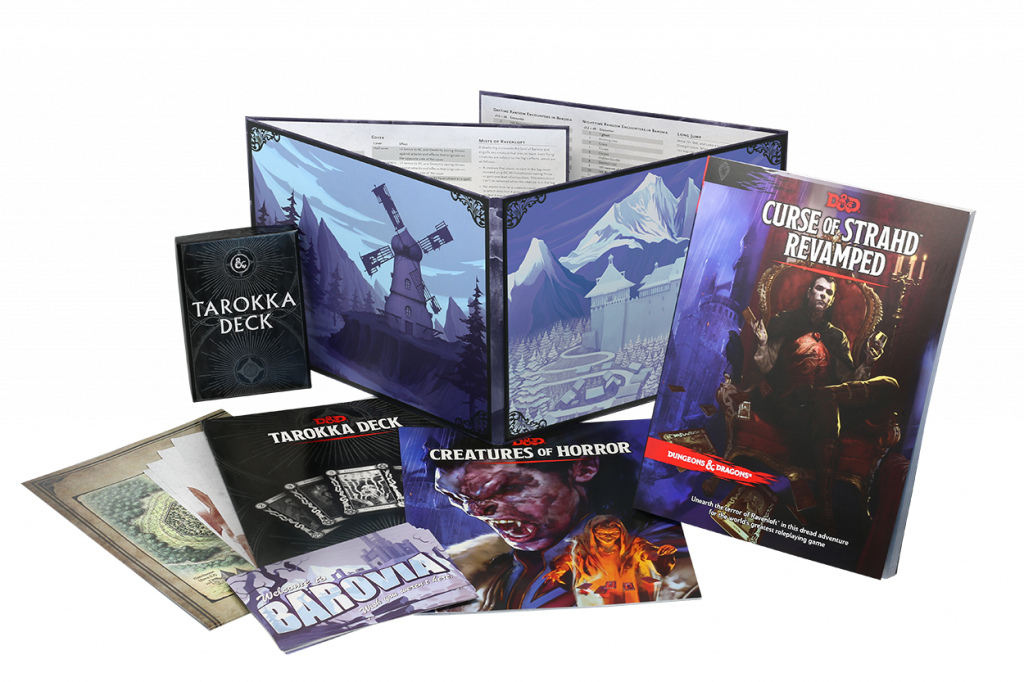
D&D Beyond and Going Digital
The first Dragon magazine I ever bought (Issue 80, Dec. 1983), featured an article titled “Dungeon Master’s Familiar, A program for computer-conducted combat.” It included around 218 lines of code for a program that included dice rolling and the ability to enter characters for an “Automated Combat Sequence.” Long story, short: Yes, I typed all that in and no I didn’t get it to run. I share this anecdote to demonstrate the siren’s song of merging D&D and digital is nothing new. It wasn’t the last time I’d brave the waters of BASIC Programming (or other methods) to try and achieve the dream of a digital D&D experience.
Of course, I wasn’t alone in my digital dreams. TSR and Wizards have tried repeatedly to merge D&D with computers. There were digitized rulebooks for 2nd Edition (2e) D&D. The 3rd edition (3e) Player’s Handbook came with a Character Generator CD-ROM. Along with 4th Edition (4e) D&D, Wizards tried the digital subscription route with ‘Dungeons & Dragons Insider’ launched in 2007 including a Virtual Table, Character Visualizer and other features, with support ending in 2014 and being officially shelved in 2020.
There are many apps, character sheet programs, dice programs and other digital assistants—more than I can list, as well as third-party tabletop programs. The effort to integrate D&D into a digital format has been going on a long time. It’s not always gone well and it rarely delivers what is promised.
Someone once said: “The definition of insanity is doing the same thing over and over and expecting a different result.” Someone else said: “If at first you don’t succeed, try, try again.” In regards to D&D digital integration, Wizards is going to find out which is correct.
As discussed above, Wizards’ main focus for the game, and corporate strategy for driving profits, runs directly through digital gaming. Their plan is “digital first” and their management team’s expertise is in this area. Their statements are rife with terminology from the digital world.
D&D Beyond is the official digital toolset for 5e (and One D&D, currently in playtest) which is browser based and via a mobile app. You can sign up for free, but subscription services start at $2.99 monthly. Honestly, it looks quite good, and offers a lot of material. This will be the outlet that helps Hasbro/Wizards realize their monetization dreams.
Alongside the digital toolset is the Virtual Table Top (VTT). It simulates what players might see sitting around a game table filled with dungeon terrain and miniatures. Bits of pre-alpha footage look good. I must admit when I see these things, it pushes those same buttons as that 1983 Dragon article did. It remains to be seen if digital integration will provide the wonderous results that have been promised many times before or whether it will push D&D farther away from being a role-playing game and into little more than a monetization machine.
One could argue that question is already answered—there are several virtual table top services that people use and enjoy. COVID created a shift in the way people play D&D, but is that change permanent? Many players have grown accustomed to playing online, and perhaps some prefer it, even if for purely practical reasons. Will players embrace VTT play moving forward? Wizards is heavily betting on that answer being yes, and they are taking steps to MAKE that happen.
The reason for that is, again, monetization. Wizards describes offering ‘Playsets’ on the VTT, which will undoubtedly include a wide variety of customization. That points directly (with giant flashing neon lights) at microtransactions. But why wait? You can already bling out your game with a digital dice set for only $5.99.
Looking at the D&D Beyond Marketplace you can get a digital copy of the 5e Player’s Handbook for $29.99 or perhaps you want to save a little money—get the player bundle for 20% off! The per-unit production cost (not counting development costs) is $0.00. By comparison a quick search shows that a physical copy of the same book is currently available for $22.95 (regular price $49.95) on Amazon—but that requires printing and shipping costs as well as Amazon’s cut. It becomes rather easy to see why Hasbro/Wizards is pushing “digital first.”
I don’t know how many players prefer hard cover books and playing around a real table with friends, but you can rest assured, Wizards has studied this extensively, and they are convinced that digital and not traditional is where the most profit is to be made. It might seem that shifting format from books to digital won’t impact the game, but it’s not that simple.
Baron de Ropp of Dungeon Masterpiece seems to share my childhood RPG dreams. In his recent Video “One D&D’s new VTT is Bad for D&D. Here’s Why” he explains why the evolution towards digital is inevitable, but how the medium negatively alters the game and “…how this seemingly small development will likely negatively impact the table top role-playing community for generations to come.”
Baron notes that even battle maps and miniatures affect the “theater of the mind” gaming and VTTs amplify this effect to the point of becoming a constraint to the actual game play. Despite attempts to disavow it, Digital D&D is becoming a video game. Baron argues that players who grew up in a world of video gaming will bring those expectations with them. He further argues that unlike current VTTs, D&D Beyond is the default mode for One D&D and the full force of Wizards’ marketing effort is behind this. Wizards has made it clear D&D is “digital first,” period. Much of the D&D 5e Community are accustomed to this sort of offering, and are EAGER to pay for character skins and other microtransactions—it’s what they’ve been raised to expect.
What if, like me, you’re not of that generation or don’t share that mindset? Well, it may be hard to hear, but we are obsolete and not very welcome in Wizard’s “Community.” To quote a popular online phase— “it’s not for you.” That said, Hasbro is investing a lot of money and effort into Digital D&D and they aren’t likely to leave this to chance. Don’t worry—no one is going to come to your house to break your kneecaps, but they will provide you plenty of incentive and in the end, players will be provided an offer they can’t refuse. Digital D&D isn’t so much an option—it’s what players WILL do if they want to participate in the One D&D lifestyle.
Suddenly that title “One D&D” seems a bit more ominous than I’d originally thought. Oddly enough, an upcoming Magic the Gathering set release is titled “Phyrexia: All Will Be One.” Almost like there’s a little subliminal pattern there…ah, probably nothing to worry about.
All of this is about recurrent spending, and Hasbro/Wizards belief that the IP is under-monetized. Pushing players into a digital subscription service is to create a continuous revenue stream that they know customers won’t tend to stop. Wizards only need create the illusion that you’re getting amazing content for that regular spending—and you will, but digital content costs very little to produce, making this extremely profitable. Companies such as Apple roll out carefully planned “updates” including those that have been around on other platforms a decade before and pretend that they’re giving you a new product. Expect something similar from Wizards.
Leave aside my skepticism regarding corporate monetization strategies. Updates and new products will be delivered immediately, corrections or changes, for other reasons outside of the game, will be made and your digital content will always be up to date, and ‘problematic’ material will be removed as to not offend the D&D community. The hard copy book that you might prefer is likely to be outdated by the time you get it in your hands.
The ease in updating or correcting rules or content will likely lead to less careful development. Don’t worry about it, if it doesn’t work, we’ll just change it. If you doubt this is true, then I suggest you look into Alchemy for Magic the Gathering Arena—another Wizards Digital game. They present it as a positive, but what it really means is that your game content shifts and changes at Wizards’ whim, and it has made some players angry. The issues aren’t exactly the same, but the cause-effect is. Wizards’ monetization ploys harm the game and the customer.
Key Points: Wizards isn’t going to provide a true choice and they will create the persuasion required to push players into D&D Beyond and the VTT. The supposed benefits and convenience of the digital medium is filled with pitfalls and questionable value to the customer and negatively impacts the game itself.
D&D Universal Recognition and Open Gaming License
As Chris Cocks stated, D&D is a “10 of 10” in recognition. That’s great for a brand…or is it? A classic example is Kleenex®, a paper product brand name and trademark of Kimberly-Clark, which in common usage became genericized and largely synonymous with ‘facial tissue.’ Another example is VELCRO® used generically to refer to hook-and-loop fastener material, but which is actually another trademarked name.
Universal recognition for D&D might seem like a benefit, but it has the downside of people seeing all similar products on the same level as the specific product. When a general audience thinks of RPGs they think D&D. People that play a version of D&D/AD&D certainly call it D&D. People that play Pathfinder, Castles and Crusades, Old School Essentials, or dozens of others might also refer to it generically as D&D.
So, oddly most of the things casually referred to as “D&D” are not in fact a product Wizards of the Coast. Wizards may be concerned about this issue, because a hot-button topic at the time of this writing is Wizards’ policy for future versions of D&D (currently called One D&D) in regards to the Open Gaming License (OGL) This is a fairly complex topic, but the Open Gaming License originally published in 2000, alongside 3rd Edition D&D, provides creators a license to use D&D mechanics and certain content in the Systems Reference Document (SRD) in their own publications.
There has been some speculation that Wizards will attempt to limit third party publishers. Comicbook.com asked Wizards about this and their response is as follows:
“We will continue to support the thousands of creators making third-party D&D content with the release of One D&D in 2024. While it is certain our Open Game License (OGL) will continue to evolve, just as it has since its inception, we’re too early in the development of One D&D to give more specifics on the OGL or System Reference Document (SRD) at this time.”
Rumors are abundant and various commentators are expressing concerns. One commentator (Ted) from the channel Nerd Immersion took a frank, in-depth look at the current OGL issues as well as Wizards’ other actions and claims to have corroborated information regarding these claims. In my view, Ted is a true fan and someone who has been very positive towards D&D, specifically 5e, describing it as “the greatest edition of Dungeons and Dragons ever released.” I encourage readers to watch the video linked above to hear him fully in his own words.
In the video, Ted expresses his concerns and skepticism about what Wizards appears to be doing, using terms like “red flags,” and “scummy and sketchy.” He alleges that Wizards is attempting to “muzzle” people with NDAs and speculates that Wizards might attempt to coerce people like him (influencers) with creator licenses for One D&D, and appears at one point to be visibly upset. He’s not alone.
The actual policies Wizards will enact remain to be seen, but indications are, that they are aware of this issue and are considering steps to address third party competition. They’ve been down this road before. Wizards did not publish 4th Edition D&D with the OGL, which had a number of consequences. Paizo Inc., which had been publishing Dragon and Dungeon magazines with content for 3e/3.5 D&D, responded to the loss of that license in 2007 and the release of 4e by publishing the ‘Pathfinder Role Playing Game’ (based on 3.5 D&D under the OGL) in 2009, which became a major competitor of D&D. The second result was (intentionally) weak third party support and a relatively (unintentional) short life for 4e D&D.
The open gaming issue is a potential flashpoint for players and third party creators, and this alone could create significant problems for Wizards and D&D. Wizards’ reluctance to provide clear answers has created uncertainty for independent creators, growing discontent.
As this article is being written, the story is continuing to develop. Wizards responded to the controversy regarding the OGL, releasing the following statement: OGLs, SRDs & One D&D. This statement falls short of providing clear answers, as it remains far from complete or final, but this is a significant development.
The immediate reaction seems to have comforted some, while others see this as their worst fears materializing. Wizards states they plan to continue the OGL (revised to version 1.1 releasing in early 2023). They list significant and important changes. There are two bombshell elements that impact creators offering commercial content:
- Wizards now requires you to submit your offering (which implies they will approve or disapprove of your product).
- Creators will be required to report income exceeding $50,000 to Wizards and, starting in 2024, if you earn over $750,000 (as many crowdfunding campaigns do), then you must pay royalties.
A major question that was not answered is who retains the rights to those materials? DMs Guild is a collaboration between Wizards and OneBookShelf which allows creators to use Wizards IP, but it also gives Wizards the right to use those creators’ IPs. I would not be at all surprised if that is added as a condition within the 1.1 revision of the OGL.
These are fundamental changes to the OGL, which in my opinion stretches the credibility of the term ‘Open Gaming License.’ There are a lot of legal details wrapped up in intellectual property issues, and I’m not a lawyer, but it looks to me like this is all aimed at limiting and controlling third party competitors. I referred to this issue as a potential flashpoint—correction, the match has been lit.
Key Point: Wizards of the Coast’s actions or inaction is resulting in discontent among customers and third-party creators. Customers have expectations that may be in conflict with Hasbro Corporate demands and goals. The current OGL provides one path to direct competition with Wizards official version of D&D, and it appears they will attempt to exert control over third-party creators via royalties and approval processes.
Wizards: Innovator or Following the Leader?
We’ve discussed the corporate plans, the inevitability and the massive push towards D&D as a lifestyle brand and into digital integration, following the successful examples of other companies where the leadership of Wizards came from. It’s going to happen, and Wizards is banking on it being a huge success.
This isn’t the first time that Wizards tried to hop onto someone else’s bandwagon on the road to “sure thing” fat profits. This brings us to the story of 4th Edition D&D. World of Warcraft (WoW) was released in 2004, and is an MMORPG—basically an online RPG with obvious similarities to D&D. It became one of the most successful video games of all time, earning billions of dollars, through monthly subscriptions.
4e D&D was a significant departure from 3e in terms of game mechanics and many believe that it was an attempt by Wizards to chase the WoW customer. It was largely believed that WoW was drawing many Tabletop RPG players. While initial sales of 4e D&D were good, the game proved to be unpopular, and attempts at digital integration were disappointing. Playing follow the leader, ignoring what made a great pen and paper RPG, and chasing video game customers, was a failure for Wizards. They forgot what their game was about and why it was successful in the first place.
Wizard’s strategy for 4e was to try and replicate someone else’s success and that’s exactly what they’re doing with their ‘digital first’ strategy for D&D Beyond/One D&D. Then they chased WoW, and today they are chasing monetization models from video and mobile gaming. As stated above, Hasbro CEO Chris Cocks sees the RPG market as: “… a category that we’re an early leader in, the best innovator in, and have every right to win…”
There are several things wrong with that statement. First, Wizards is not innovating—they bought out another company that built the D&D Beyond platform, which is essentially a rehash of earlier failed digital integration schemes and VTT that others already do. Second, their monetization plans are lifted entirely from the video game/mobile market. Lastly, no one has a “right” to win customers’ money. Whether Hasbro/Wizards will admit or not (their fireside chat denial of reality in regards to Magic the Gathering shows they won’t), a growing number of customers are getting tired of the blathering arrogance of corporate figures like Chris Cocks and Cynthia Williams. These two managed to turn a fireside chat into a raging inferno.
Will Wizards succeed this time? Perhaps, and they can collect all the back pats, from the denizens at their cocktail parties, they can handle. Meanwhile, people who actually care about D&D the game will have choices to make.
Key Point: Wizards claims to be innovating, but they’re retracing paths that led them to failure before. They’re betting on their ability to finally get right what failed in the past. To accomplish their goals they have to get a lot of things right including their monetization plans, planned obsoleting of print editions, digital integration, and plans for the OGL. Storm clouds are rolling in, but Wizards has charted their course, and they’re not stopping.
Edition Changes—Never Pretty
TSR and Wizards have both survived D&D edition changes, but it’s never pretty. Add this to the long list of problems facing D&D.
Wizards of the Coast has stated that there is only one version of D&D moving forward calling One D&D an “Evolution” and not calling it 6th Edition (6e). Wizards has claimed that it will be backwards compatible with 5e, but this seems to be a questionable claim. Playtest materials indicate significant changes, so whether it is technically compatibility, this will be a version change. Wizards had a similar situation with 3e and 3.5e; the core rules are almost the same, but the content is wildly different.
Changing versions is always a contentious issue. The prospect of having to shell out money for new books when many players are content with the existing version is often received poorly. The shift from 2nd to 3rd and 3rd to 4th were particularly acrimonious in my personal experience. Some players simply don’t want to make the change, and will stick with what they are comfortable with. It is entirely possible that another game based on the 5e SRD could be created (similar to Pathfinder and 3e) providing players with yet another option.
Key Point: Regardless of what you name it, One D&D, 6e or claims of backwards compatibility, D&D is undergoing another Edition Changes and that is always troublesome.
Growing Competition
The other day, someone online, who I assume is young and knows little of the history of D&D, declared that 5e D&D has no competition. Ah, the certainty of youth.
There is a movement that’s been going on for a while called the Old School Renaissance, or Old School Revival (OSR). It’s a broad term which can apply to gamers who prefer older versions of Dungeons and Dragons, often Basic/Expert D&D (B/X, or sometimes BECMI) from the 1981 or 1983 editions of basic D&D, or 1st Edition AD&D (sometimes 2e AD&D), or a variety of Retro-clones of those games like Old School Essentials, Labyrinth Lord or OSRIC. Lion and Dragon is an OSR game that promises to provide a historically accurate Medieval setting and there are many others.
There are a host of d20 system (essentially 3e ruleset) games, including the official 3e/3.5 D&D (one of my favorites), Pathfinder 1e, and Castles and Crusades which uses d20 system rules with a 1e flavor. Another is Dungeon Crawl Classics which also uses the d20 system with some twists.
There are reinterpretations or tool kits for OSR (or 5e) gaming including: The Black Hack, Knave, and Deathbringer. If that isn’t enough you have many variants and forks from 5e such as Five Torches Deep, 5th Edition Advanced Mode, and 5e Hardcore Mode.
You also have non-OSR games, including Pathfinder 2nd Edition by Paizo which is a mainstream, fully featured modern RPG or the Savage Worlds family of games. There are also many RPGs seeking to provide a streamlined system such as Index Card RPG. This is only scratching the surface of games that I’m personally aware of and have a bit of familiarity. There are many more and that’s before we even start talking about non-fantasy genres.
Beyond small publishing houses, competition can also come from truly independent creators (one person shops in some cases) who have expanded options using crowdfunding. This movement is up and running with countless offerings, and no sign of stopping. None of these (even if combined) come close to Wizards’ current D&D revenue, but that is missing the point.
Far be it from me to question the pronouncements of that wisdom-of-teen-years social media scamp, but these games exist, because 5e isn’t providing what all players want. Wizards D&D in fact does have many competitors, and the seemingly unassailable biggest name in RPGs has been defeated before. Every customer that Wizards pushes away will find dozens of others ready to welcome them.
Key Point: Players dissatisfied with Wizards D&D, their monetization plans or anything else have endless options for their gaming time and money. People that believe that D&D the brand is unbeatable simply don’t know gaming history.
Dungeon Master Crisis
Despite the current popularity of 5e, there are reports of a shortage of Dungeon Masters. If there aren’t people willing to DM games, then there are no games, and that means no customers.
Ben from the Questing Beast Channel discusses this issue in his video “5e DnD has a DM Crisis.” He observed a shortage of DMs is a problem somewhat unique to 5e, noting the opposite was true with his experience with the OSR. To verify his observations, Ben polled his audience and it supported his observation that this issue is much more common for 5e players. Ben discusses that the 5e subculture puts a high burden on DMs, compared to OSR games.
Another issue is that 5e D&D suffers from an immense amount of clutter. Dungeon Craft Episode 296 addresses the DM Crisis including the clutter issue. Professor Dungeon Master notes that 5e is a game marketed towards players and with supplements “…it’s all about new species, new sub-classes, new feats, new skills and new spells, and it works, it sells a lot of copies.” Professor DM also notes that this is “…arduous for a new, inexperienced dungeon master to run.”
The DM has to keep track of all of this material and how it impacts his or her game, whereas a player is generally just responsible for their character and options they choose. Not only do they need to be aware of it, a 5e DM has to provide a challenge for characters that are sporting ever more expansive super-powers.
Another issue is that 5e players tend to have high expectations, especially if their concept of the game comes from watching Stranger Things or Critical Role. The 5e player tends to expect to be provided an epic story where they are the hero. Old school gaming was more about letting the story emerge, rather than leading players through a plot that satisfied their every desire. Don’t misunderstand, epic stories happened…because of accomplishments in the game, not because a player demanded the DM incorporate unbalanced options from Wizards’ latest $50 supplement. Being a player is easy, being a DM is hard, and that’s nothing new. Power creep and unbeatable characters goes way back, but 5e D&D seems to find a way to amplify issues.
It doesn’t matter if Ben’s observations, Professor Dungeon Master’s analysis or my opinions are correct—the problem exists and Wizards created it, intentionally or not. Wizards’ monetization plans aren’t going to alleviate these problems—they’ll make things worse.
Key Point: You need a DM to run a game of D&D, and there’s a shortage. No DM means no Players, so Wizards will have to address this issue one way or another—unless 3 of 4 other “quadrants” are profitable enough compared to actual role-playing gaming. Wizards’ need to keep pushing product is a problem for DMs and that’s harming the game.
Rapid Expansion and Future Growth
We’ve discussed the name recognition of D&D which is hard to deny. D&D saw a boom in the 5e era that surpassed the heights of the TSR glory days. Stranger Things, Critical Role, and COVID all resulted in a spike in sales for D&D. Chris Cocks has stated that he expects the D&D movie and AAA games to keep that ball rolling—to help promote “…an amazing set of products that we will activate at Hasbro across our blueprint.”
The thing about booms is that they are often followed by busts, and Hasbro’s recent earnings reports indicated that expansion due to pop culture exposure and external world issues aren’t going to last forever. Despite that, Hasbro has made bold claims about future profits. A news report on Hasbro’s financial outlook states: “Operating profit growth of 50% over the next three years” as well as other aggressive growth claims.
Observers have noted this is an unrealistic expectation—to expect accelerated growth from already peak levels. Hasbro wouldn’t be the first corporation to make the mistake of thinking that the gravy train has no end, only to find that train falling off a cliff. Bank of America has said Hasbro is “killing its golden goose” by overprinting Magic the Gathering cards and “destroying its long term value.” Wizards’ plan to aggressively expand monetization of D&D is likely to have similar undesirable effects on the game.
Key Point: Hasbro is aggressively pursuing accelerating profits, without regard for long term harm to their games. Magic the Gathering is already seeing these negative effects and D&D is next.
Satanic Panic 2.0
The ‘Satanic Panic’ is another rather complex issue, but the short version in regards to D&D is that, during the 1970s and 80s, real world events (and various false claims) were set at the feet of TSR (who published D&D at the time). TSR was facing demands to answer for social problems that were outside of their control and that existed prior to the creation of the game.
These accusations received mainstream media coverage, including 60 Minutes (a very influential CBS news magazine at the time). Dungeons and Dragons was at the center of a moral panic. Gary Gygax (and TSR) understood this as did the players of that era and they rightfully pushed back on the irrational accusations. D&D survived.
In contrast, Wizards of the Coast refuses to stand by the content of the profitable D&D brand’s past. The website DriveThruRPG sells downloadable, and reprint version of older D&D products (and many other games). Descriptions for D&D products there include the following statement from Wizards:
“We (Wizards) recognize that some of the legacy content available on this website does not reflect the values of the Dungeons and Dragons franchise today. Some older content may reflect ethnic, racial and gender prejudice that were commonplace in American society at that time. These depictions were wrong then and are wrong today. This content is presented as it was originally created, because to do otherwise would be the same as claiming these prejudices never existed. Dungeons and Dragons teaches that diversity is a strength, and we strive to make our D&D products as welcoming and inclusive as possible. That part of our work will never end.”
Wizards of the Coast disavowed their own game’s history, but (cleverly) declines to specify exactly what depictions were “wrong” in products published from 1974 to 2010 (marking them all the same), but they wanted to make it clear, they’re against anything that someone on Twitter in 2022 might declare offensive and their opposition to “wrong” ideas will “never end.”
Forget the implications of using a broad brush to accuse innocent creators of moral crimes. Forget the hypocrisy of continuing to profit from a catalog of publications littered with “wrong” depictions. 5e D&D and every future version is built on the foundation of work done by people Wizards has declared as wrong-doers.
Wizards has also validated the premise that D&D is rooted in whatever “wrong” anyone decides to assign to the game and they’re reaping what they’ve sown. D&D is regularly declared guilty of promoting or supporting various social and moral transgressions, or failing to do enough to correct wrongs of the past. These accusations often come from within the 5e community.
Individuals can decide whether the accusations are valid, reflecting an evolution in the moral standards of society or baseless attacks born out of a modern moral panic, or anywhere in-between. Regardless of anyone’s opinion, the fact is Hasbro/Wizards is now in a position where they’re obligated to continually answer these accusations and they are altering the story content, rules and terminology, having a direct effect on the game.
No one can logically respond to a moral panic, be it the Salem Witch trials or the Satanic Panic; they are by their nature, irrational. Yet Wizards thinks they can issue enough apologies, deflect enough blame, or change enough ‘problematic’ words to stay ahead of the accusations they’ve validated. They’re guaranteed to make someone unhappy, whether it is seen as pandering, corporate virtue signaling or failing to be responsible corporate citizens. It’s a lose-lose, and the only question is whether their corporate PR is effectively playing to the community they need to drive profitability.
During the Satanic Panic, outsiders attacked the game and creators and players of D&D stood together and prevailed against unfair and untrue accusations. Contrast that with today, where Wizards promotes, validates or engages in attacks against the original creators, a multitude of others who helped create D&D over four decades and even their own customers who disagree with the accusations. Few people are gullible enough to believe Hasbro/Wizards are doing this due to any ethical belief. Wizards is playing a PR game and it is and will continue to impact the game that players love.
Key Point: Wizards has chosen to validate a moral panic and will sacrifice the game, its creators and anything else it needs to in order to placate accusers.
Wizards Fosters Division, Disrespect and Toxicity
The 5e Community, in my observation, as a whole (not any given individual) is self-righteous, privileged and toxic (to use a popular term). While I am sure this is a case of a few bad apples spoiling the bunch, the behavior of various people claiming to represent the 5e community is disappointing.
Where does this toxicity come from? While Hasbro/Wizards is an amoral corporation that seeks to maximize profit, it seems determined to encourage people to bring their personal, social and political issues to the table. Instead of gaming being a hobby that can bring people together through common interests, like old school fandoms did, Wizards’ “lifestyle brand” marketing prefers to sow division and to enable an us/them mindset, while claiming they are dedicated to “inclusion.” They aren’t, and I can’t pretend that they aren’t enabling untruthful attacks by their toxic community.
A recent example demonstrates the fluidity of Wizards’ moral beliefs. Bounding Into Comics reported on the Spelljammer Controversy. Wizards’ depiction of a fictional fantasy race (the Hadozee) and their background was said to include depictions the accusers attributed to real world people, and that Wizards was guilty of racism. Wizards agreed, issuing an apology stating:
“We failed, you, our players and our fans, and we are truly sorry. Regrettably, not all portions of the content relating to the Hadozee were properly vetted before appearing in our most recent release. As we continue to learn and grow through every situation, we recognize that to live our values, we have to do better.”
Whether you think the accusation is valid is up to you, but how gullible must one be to swallow this corporate PR without skepticism? Exactly how does a company with a regimented editorial and approval process just fail to “properly vet” this depiction and then suddenly agree that the accusations are entirely correct? It just so happens that the exact parts that the 5e community disagreed with are those that just happened elude being “properly vetted.”
How can a company that is supposedly so self-aware, and eager to point out “wrong” depictions in past publications, make such an egregious error? I don’t believe there was an error. This is an example of the cowardly, cynical PR response that Wizards is more than happy to issue, because they have no moral compass other than what points to profits. This plays well to a 5e community that seems to enjoy making accusations and having Wizards validate them.
Recalling Wizards’ actions are about monetization, they have identified their target audience. If you’re not part of that group, they will take your money, but they probably know you’re not buying the lifestyle they’re selling. People that don’t believe that fantasy races reflect on real people, aren’t easily offended, and who care about gaming…well, you’re not who Wizards cares about and you’re not likely to fall for their monetization schemes.
Wizards has already demonstrated that they will preemptively disavow decades of products and creators, and they will immediately give in to accusations and alter the game to match the demands of accusers for PR purposes. The game is secondary.
Wizards appears to be comfortable in their ability to apologize their way out of accusations. The 5e Community seems to love it, but what happens if this group, which likely isn’t terribly favorable towards capitalism, realizes they’ve aligned themselves with “Big Game,” a corporation whose “moral” beliefs change like the wind. I’m guessing Wizards is aware of this, but have plenty of innocent people to point fingers at, and that the “community” can continue to be manipulated easily enough
Key Point: Wizards has enabled, supported and/or created a toxic community that enjoys accusing others, and Wizards will change or remove game content that is deemed problematic. With the digital format, it will simply disappear.
Mass Market vs Specialty Hobby
Mass market products are not the same as specialty products. While TSR D&D was popular in the 1970s and 1980s it remained a specialty, hobbyist product. Products with a well-defined customer base (as measured by interest, not identity) serve the needs of those customers. These products can be innovative in that space and remain fresh and interesting.
Mass market products are just the opposite—they have to have broad appeal, have to be “safe” else they offend people. These products rarely see true innovation, because they don’t need to. 5e D&D is a mass market product—you can find it at any Target or Wal Mart. They’re afraid to change—look at Wizards’ attempts to deny they’re making a new version of the game. What corporations will do is endlessly repackage mass market products to appear interesting.
If you’re a gamer, I suggest the game you love becoming mass market is a very bad thing. You won’t lack for product, but you probably don’t like what it’s become. That is 5e D&D in a nutshell. My personal opinion is that people play 5e for two basic reasons: Participating in a mass market game is easier—just to find others who play; or they aren’t aware of the myriad other, better choices.
I often hear people talk about how great it is to expand a game’s audience. Good for who? How is it good for someone who finds a product that suits their needs enhanced by that product being transformed into something they didn’t want in the first place? How are a gamer’s needs satisfied by a mega-corporation monetizing the game, transforming it into something unrecognizable and, in the case of D&D, diminishing the game itself?
Key Point: Being a mass market game is bad for D&D. Players who want either a more pure, traditional game or innovation game have many better options. D&D isn’t a game to Hasbro—it’s a mass market product, no different than laundry detergent is to a household products company.
D&D, what’s in a Name
I’ve talked to many people who insist that Wizards D&D isn’t real D&D and they make their arguments, based usually in some nostalgic claims or stating their preference. Edition wars are not new, and they can be kind of fun. I’ve got my own preferences. I cannot deny that Hasbro/Wizards owns the name ‘Dungeons and Dragons’ and has the rights to the IP. I also cannot deny that the current D&D product is far removed from the roots of Dungeons and Dragons and it’s getting more distant all the time.
People change, markets change, and society changes, like it or not. Products also change, but not always for the better, and I think the people in control of D&D and some current fans of D&D have little appreciation of the history of the game. Shamefully, many of them have open, ignorant disdain or hatred for the creators of the game and people who have been playing it for decades.
So, when someone says “That’s not real D&D” I know they’re technically wrong, but in most ways that matter—they’re often right. D&D has its roots in miniatures war-gaming, and the inspired, creative people who brought this game to life deserve a certain amount of respect. They created this game from nothing. So when I see someone with their shiny D&D merch, proudly signaling their membership in a “lifestyle brand” while spitting on the people who provided them with their co-opted identity, I can only shake my head.
Key Point: D&D is officially owned by a corporation that doesn’t respect its history, players, or legacy and that disrespect is embodied in a game that barely resembles that of the original creators.
Conclusion
Dungeons and Dragons is the most recognized name in Role-Playing Games, but where is the game headed? D&D has been knocked off its perch before, and it can happen again. We’ve explored a host of issues, mostly rooted in Hasbro/Wizards’ corporate blueprint, and all leading back to their monetization plans.
While trying to reassure investors regarding problems with Magic the Gathering, the CEO of Hasbro and President of Wizards set off a different firestorm in regards to Dungeons and Dragons. During the broadcast, commentators recognized the red flags in their statements in real time. It is hard to understand how these high-powered, cocktail party attending, executives could be so unaware of the problems they were creating.
Within the span of an hour, they revealed that within the area of D&D, the legendary role-playing game is not their central focus, but only one of four categories. Within that quadrant, the game design was almost an afterthought, while the medium of the game (digital first) was of paramount importance. The reason is that the digital medium is Hasbro’s pathway to maximizing profits. Hasbro/Wizards made it clear—the game is there to serve the digital monetization plans.
Content will be designed to serve the digital format, not the best play experience, and to drive subscriptions. The content will change, subject to the declarations of a toxic community that finds delight in accusing people.
Third party content has been a vibrant part of the game, but despite being a small dollar amount compared to Wizards’ 5e sales, they apparently have a need to control this market. The Open Game License is changing to benefit Wizards’ goals and they will be attempting to control third party creators via an approval process and royalties. If you like the idea of digitally integrating D&D, you get what they allow and nothing else. Players are being herded into Wizards’ services and they will control your gaming experience.
Wizards is chasing monetization models from the mobile and video games market, and the game will change to serve those goals. The last time Wizards chased someone else’s success the result was 4e D&D, a failed digital platform, and splintering of the RPG player base. That’s a silver lining I suppose—some actual diversity rather than being dependent on Wizards. Wizards has stated that the game will be backwards compatible to 5e—that there is only “One D&D” but playtest material is already making it clear that they are revising the game significantly. It may technically be the same game system, but it is certainly a new version of the game.
The bright spot in all of this is that there are a multitude of choices, ranging from older (better) versions of D&D from TSR or Wizards, to tool kits for various versions, variants, and wholly separate games. This doesn’t actually impact the official D&D game, except in the event that Wizard’s current plans end up following the 4e path and crashing and burning, leading to a rebuilding effort like 5e. 7e anyone?
5e D&D is already experiencing a shortage in DMs, and nothing in Wizard’s monetization plans look like they will alleviate this problem. The fact that Wizards has not addressed this is inviting people to find other games to play.
Hasbro’s aggressive profit promises will continue to trickle down to game design, as designers attempt to meet corporate demands. This is an issue for Magic the Gathering and Wizards’ denial that any issues exist led to them inadvertently revealing similar plans for D&D. Where players see games, Hasbro/Wizards sees dollar signs.
Wizards has fostered a toxic community and created a trap for itself where they must respond to accusations at the whim of their supposed fans. They’ve sold out creators and the game’s history and they will change the game to meet these demands. All it takes is a loud accusation, and the thing you love will be deemed “wrong.” The current, corporate owners of D&D have contempt for the game and its history.
The people who run Hasbro and Wizards of the Coast are not gamers; their background isn’t RPGs, and their expertise is in digital monetization. The game will go in the direction its leaders dictate, and that is not the way of the RPG Gamer or Traditional D&D Fan. D&D is now a mass market product, the game is merely one element and the current version of D&D is increasingly disconnected from its roots as an adventure game. D&D isn’t primarily a game to Hasbro/Wizards, it’s a lifestyle brand.
The goal of the article was to look at issues that impact the game of Dungeons and Dragons, and those form a raging storm. Hasbro/Wizards’ is responsible for creating almost all of these issues. D&D the brand is and will likely remain a major component in the corporate stable of Hasbro, and they will find endless ways to monetize it, like they do with many other IP, but the choices they are making have significant detrimental effects on the game itself, and its future.
If your priority is the health and profitability of Wizards of the Coast and Hasbro, then good news—you’ve got very little to worry about. If you’re a fan of Dungeons and Dragons, the role-playing game, then perhaps the news isn’t quite as bright, and the future is far more uncertain.
What’s good for D&D the game, doesn’t matter…at all. If what’s good for Hasbro profits happens to be good for the game, then fine, but otherwise, it is utterly irrelevant. Hasbro/Wizards is marginalizing their game, and gamers.
![]()

